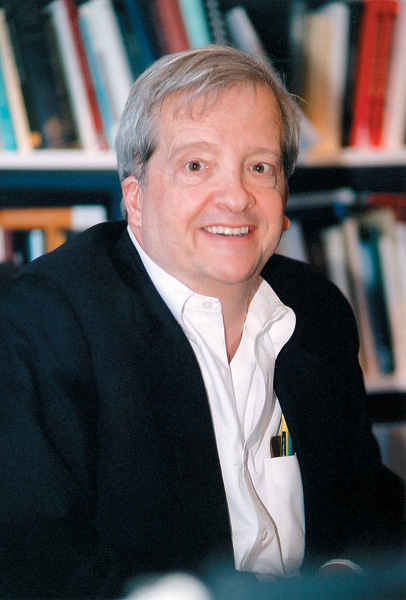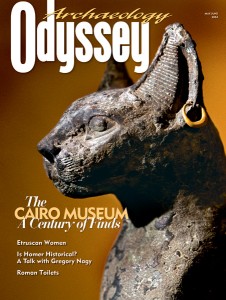Is Homer Historical? An Archaeology Odyssey Interview
To Harvard classicist Gregory Nagy, the man we call “Homer” is a myth.

The most influential Homer scholar of our generation is Gregory Nagy, Francis Jones Professor of Classical Greek Literature at Harvard University and director of the Center for Hellenic Studies in Washington D.C. Nagy has permanently changed our understanding of the Iliad and the Odyssey. No longer can we think of them as ancient “novels” written by an author named Homer; rather, these epics began as a diverse group of poems, which were passed down from generation to generation by rhapsodes (oral poets) over a period lasting more than a thousand years. So who was Homer? And how did that collection of oral poems evolve into our Iliad and Odyssey, the central literary works of Western civilization? Archaeology Odyssey managing editor Jack Meinhardt and senior editor Sudip Bose visited Greg Nagy at the Center for Hellenic Studies to find out.
Jack Meinhardt: Was there really a man named Agamemnon, in the late-second-millennium B.C.E., whom Homer describes as the king of Mycenae and the leader of the Greek forces in the Trojan War?
Already a library member? Log in here.
Institution user? Log in with your IP address.

